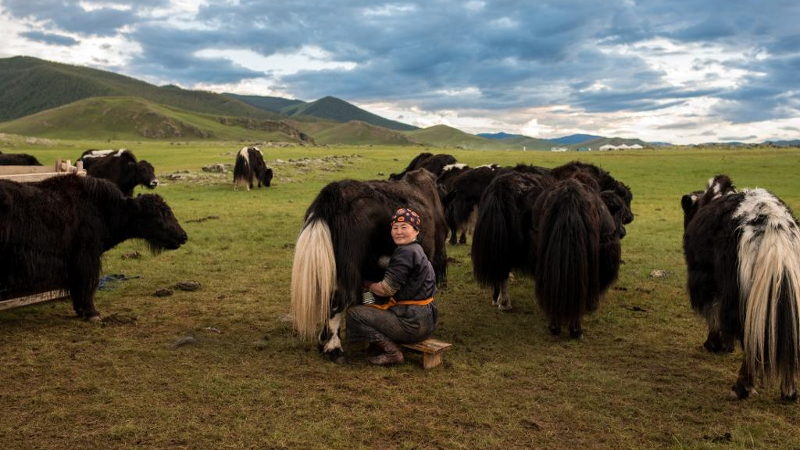
AKIPRESS.COM - Mongolia should diversify its economy in the face of climate change and other stresses, as reliance on mining at the expense of its livestock industry has put people at risk of commodity price shocks and rising unemployment, an international aid group said, reports Reuters.
Ramesh Singh, Mongolia director for Mercy Corps, said strengthening rural livestock markets and establishing centers of economic activity outside the over-stretched capital would enrich the nation's coffers, provide work for young people, and boost the country's resilience.
Mongolia has struggled with an economic crisis since 2016 due to government over-spending and declining revenues from its exports, which include copper and coal.
"We have reached a tipping point," said Singh, whose U.S.-based organization has worked in Mongolia since 1999.
Youth unemployment, climate change and heavy urbanization in the capital city of Ulaanbaatar are key issues that must be tackled, he added.
A Mercy Corps report issued last week said the mining sector employs only 3.6 percent of Mongolia's total workforce.
"There's a realization among government and development partners that it was a big mistake to focus solely on a single sector," said Singh, noting how a 17 percent growth rate in 2012 has nosedived to a projected 1.4 percent in 2017.
Meanwhile, around 30 percent of Mongolia's 3 million people live off herding horses, goats, sheep, camels, yaks and other cattle, according to the World Bank, and meat is the primary source of food for the population.
Those unable to make ends meet in rural areas - especially young people working in low-paid animal husbandry or unpaid family jobs - usually move to the capital.
There, many end up living in "ger districts", makeshift neighborhoods named after Mongolia's traditional yurt dwellings, where pollution, poverty and domestic violence are rife, aid agencies say.
Climate change could lead to more erratic rainfall and increase the frequency of droughts and dzuds, said the Mercy Corps report. But Singh said a profitable, modern herding system attractive to young people could be developed."There is a huge market potential from China and Russia which are ready to buy meat from Mongolia. There's an opportunity to develop another export market here," he told the Thomson Reuters Foundation by phone.
Mercy Corps is supporting a law to protect grazing land, and hopes to join planned efforts to map how many animals the country's pastures can support.
Its report also recommends educating herders to keep fewer, better-quality livestock, as well as developing financing to protect herders from climate threats, including insurance.
The world's first index-based livestock insurance was launched in Mongolia in 2005 but take-up has been slow due to a lack of awareness and affordability.
